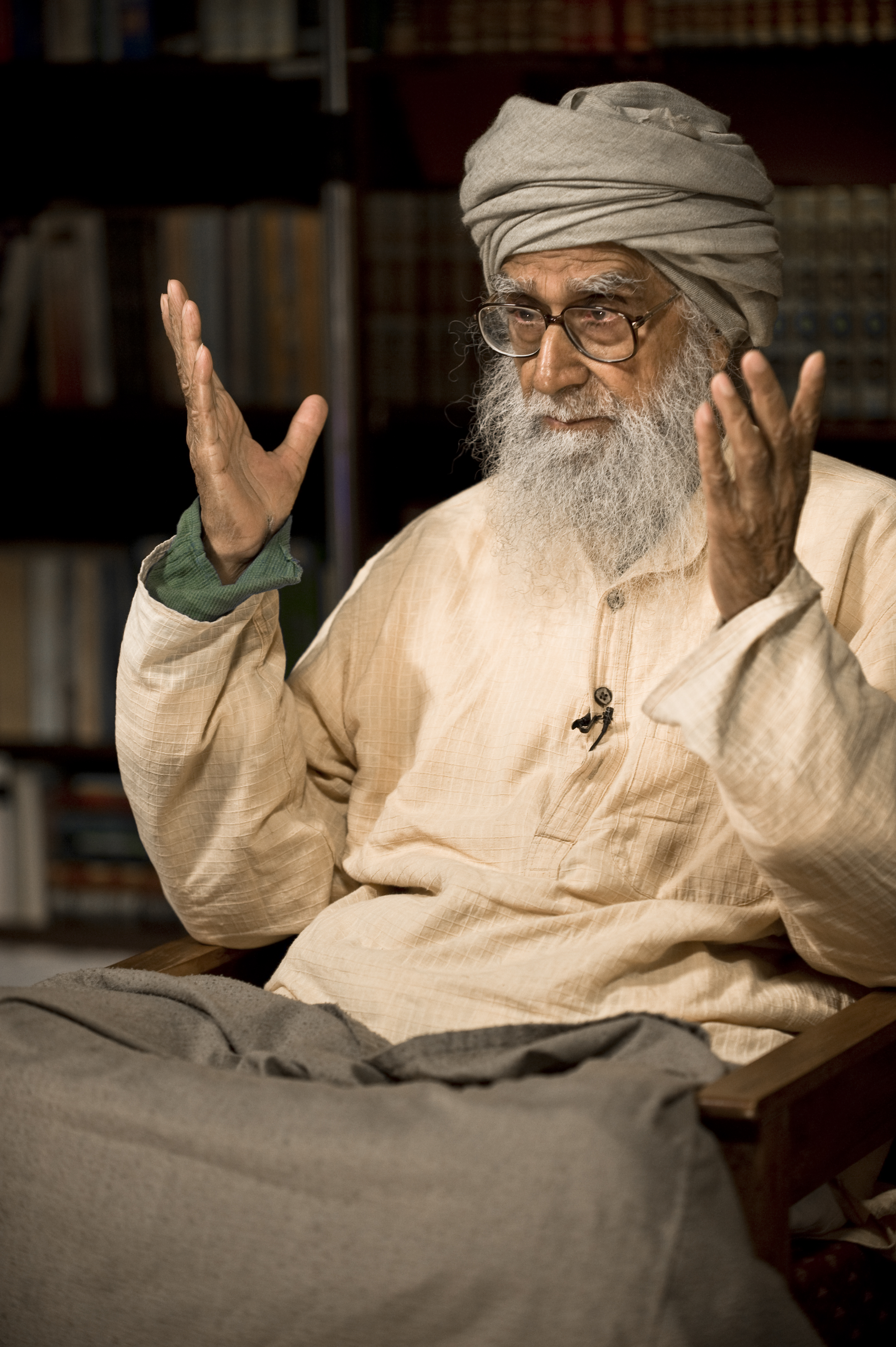ASK MAULANA
Your Questions, Answered
 What is the difference between following an impulse and giving in to temptation?
What is the difference between following an impulse and giving in to temptation?
Temptation is a negative term, while following your impulse can be positive. Allowing yourself to be guided by emotion can mean falling into temptation, whereas following your impulse means listening to reason. One is an emotional tilt, and the other is a rational decision.
How can we strike a balance between the material and the spiritual?
It is very easy. Follow the well-known principle: Simple living, and high thinking. This is the best formula for a spiritual life. Simple living saves you from distractions and high thinking enables you to discover the sublime aspects of nature or events.
To the young, freedom is the summum bonum, or greatest good. What is your opinion?
I subscribe to the concept presented by the American psychologist B. F. Skinner, in his book Freedom and Dignity, which is that — man cannot afford freedom. Total freedom leads to anarchy, and anarchy is not a workable system for any society. So, the best formula is that which is based on controlled freedom. Uncontrolled freedom is a negative freedom and controlled freedom is positive freedom.
Is it necessary to exercise restraint over our desires? If yes, how can we do this?
Our desires are unlimited, but our capacity is limited. Due to our limitations, we cannot fulfil all our desires. So, it is realistic to control our desires. If we fail to control our desires, we will fall into despair, and certainly no one can afford to follow a path which leads nowhere except to despair. It is a fact that controlling desires is a lesser evil and despair is a greater evil. And no one would prefer to involve himself in a greater evil.
Restraining desires is often associated with the stifling of personality development. Please comment.
This is a sheer fallacy. When unlimited desires cannot be fulfilled, trying to fulfil all desires will lead to a negative and not to a positive growth of the personality. Any scientific survey can disprove this kind of formulation.
Does prayer help in developing one’s personality?
Yes. Prayer means trying to establish contact with the higher reality and the higher reality is the source of all kinds of inspiration. So prayer, if it is a true prayer, will certainly help to develop the personality of the individual, be it a man or a woman.
What is most dangerous for spiritual development?
In my experience, it is excessive concern for materialism. Material goods are a necessity. When you become greedy for material things, you take the risk of losing your spirituality.
Why is it difficult for man to accept his limitations?
The reason is that people generally do not apply their mind; they run after their emotions. If you apply your reason and think about the pros and cons, if you try to understand the result of your actions, then you will never forget that rational approach is the best approach and rational approach is based on your real situation. Reason will never allow to ignore one’s own limitations.
How should we manage our ego?
It is very easy. It is said that when a peacock sees its beautiful feathers, it becomes proud, but when it sees its ugly legs, it becomes modest. The same is true of man. In every human personality there are plus points as well as minus points. Those who see their plus points become egoists, while those who see their minus points become modest. So, when a plus point comes to mind, turn your attention to the other side of your personality which has some minus point. And you will suddenly become a modest person. This is the easiest formula for maintaining modesty and avoiding arrogance.
Can man ever be free of negative feelings such as fear and doubt?
No. Negative feelings are not an evil. They also have their positive aspect. Negative feeling is a kind of shocking experience which awakens your mind; negative feelings make you able to reassess your plans, your mode of life. If you engage in introspection, negative feeling becomes a great teacher for you, provided you do not allow your negative thoughts to overpower you.
What is the difference between adjustment and compromise?
There is great difference between the two. Adjustment is a principle of wisdom; it is the well-considered behaviour of a wise person; while compromise is a form of expediency, designed merely to secure your interests without following any principle.
We are often told that we should always remain hopeful. How different is this state of positive hopefulness from having false hopes? How can we differentiate between the two?
The difference between the two is very clear. A true hope is based on reality, while false hopes are based on unreal romanticism. When you examine the situation and adopt a well-considered position, you have the right to be hopeful but when you ignore the realities and adopt the posture of the ostrich, then you are entertaining false hopes.
Please send your questions to
[email protected]
Motion and Direction
One intrinsic quality of activity is movement. But in what direction? Are you moving towards your destination, or away from it? The actual motion in both cases seems to be no different in quality. The great difference between the two is that the former brings you ever nearer to your destination, while the latter takes you further and further away from it— leading you to nowhere. It is direction that is all-important.





